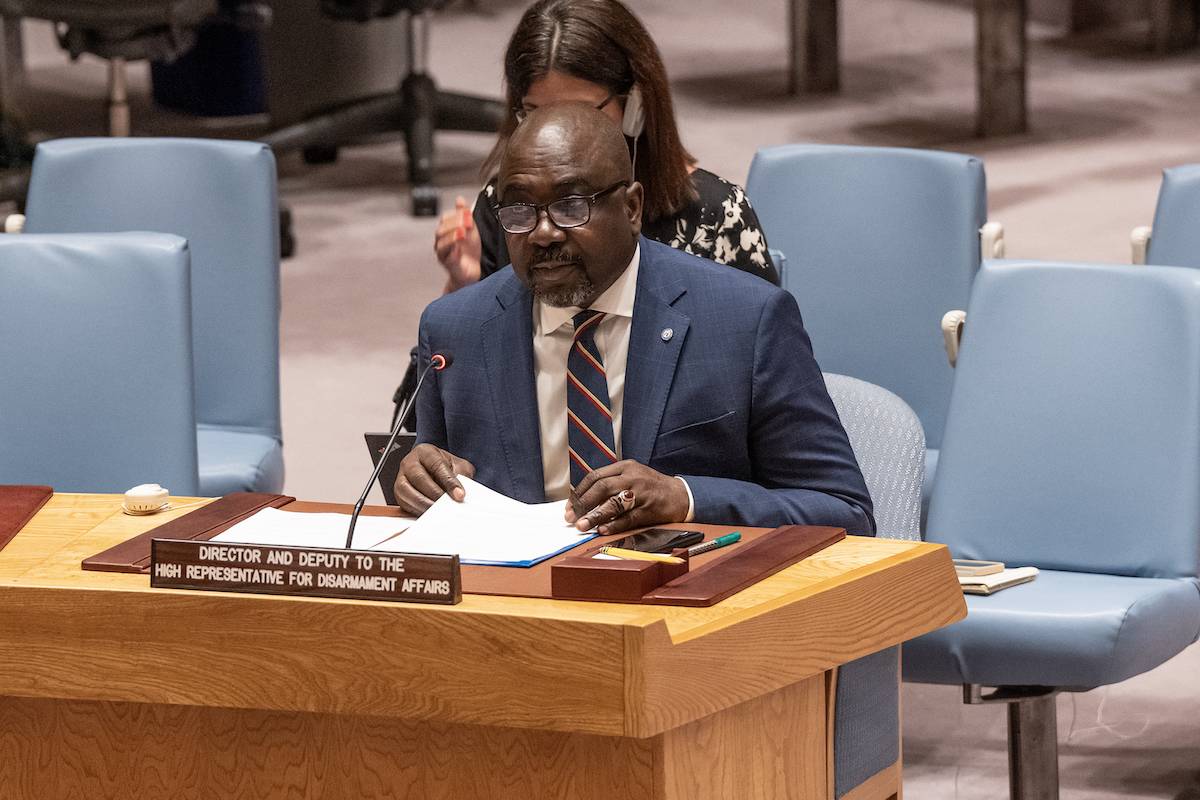
Concerns are escalating over Syria’s undeclared chemical weapons activities, prompting the international community to demand greater accountability from Bashar al-Assad’s regime. In a briefing to the United Nations Security Council on Thursday, Deputy High Representative for Disarmament Affairs Adedeji Ebo described disturbing developments regarding Assad’s chemical weapons program.
Ebo said recent findings by the Organization for the Prohibition of Chemical Weapons (OPCW) raised “very worrying” issues concerning Assad’s compliance with the Chemical Weapons Convention. The OPCW assessment team collected samples between 2020 and 2023, revealing possible undeclared chemical warfare agents. The full cycle of production – including research, development, testing, and storage – remains a major concern.
“These findings increase the number of pending issues to 26, with only seven resolved,” Ebo said, demonstrating the Assad regime’s lack of transparency in its declarations. Despite Assad submitting additional information to the OPCW, the data was deemed “insufficient.”
Assad has been under investigation since the 2013 chemical attack in Eastern Ghouta, which claimed hundreds of lives and led to Syria’s accession to the Chemical Weapons Convention. Although Damascus committed to dismantling its chemical weapons stockpiles, international investigations have repeatedly found that the regime has continued using such weapons in the years since.
The OPCW has confirmed nine instances of chemical weapons use by the Assad regime since 2013, with sarin and chlorine gas often employed against civilians. Despite years of pressure, Syria has not provided a full account of its chemical program, and international officials fear that undeclared stockpiles and facilities remain hidden.
Calls for action have been renewed as the 11th anniversary of the Ghouta attack approaches. Countries including the US, the UK, and Germany have urged Assad to fully cooperate with the OPCW. Ambassador Robert Wood, the US alternate representative for special political affairs, condemned the Assad regime for its “complete contempt” for the UN Security Council.
“We can see that the [Assad] regime has no shame,” Wood said. “Despite overwhelming evidence, the regime continues to hide its chemical arsenal and evade accountability.” British and German officials echoed these concerns. The British Foreign Office accused Assad of concealing hundreds of tons of chemical materials, while Germany’s envoy, Stefan Schneck, criticized the regime’s lack of cooperation in dismantling its stockpiles.
Ebo also pointed to logistical challenges hindering OPCW inspections of suspected facilities, such as the Scientific Studies and Research Center’s (SSRC) Barzeh and Jamrah sites, where Assad is believed to have developed chemical weapons. Scheduling the next round of consultations with regime officials has been delayed, further obstructing the verification process.
Since the first documented chemical attack by Syria in 2012, the Assad regime has been accused of 217 chemical attacks, leading to the deaths of over 1,500 people, including children and women. Resolution 2118, passed by the UN Security Council in 2013, demanded the dismantling of Syria’s chemical weapons program, but ongoing violations continue to strain international efforts to enforce it. Assad’s representative to the UN, Qusay Dahhak, dismissed the allegations as “false” and parroted Russian propaganda claiming they were part of an “agenda by hostile Western nations.”








